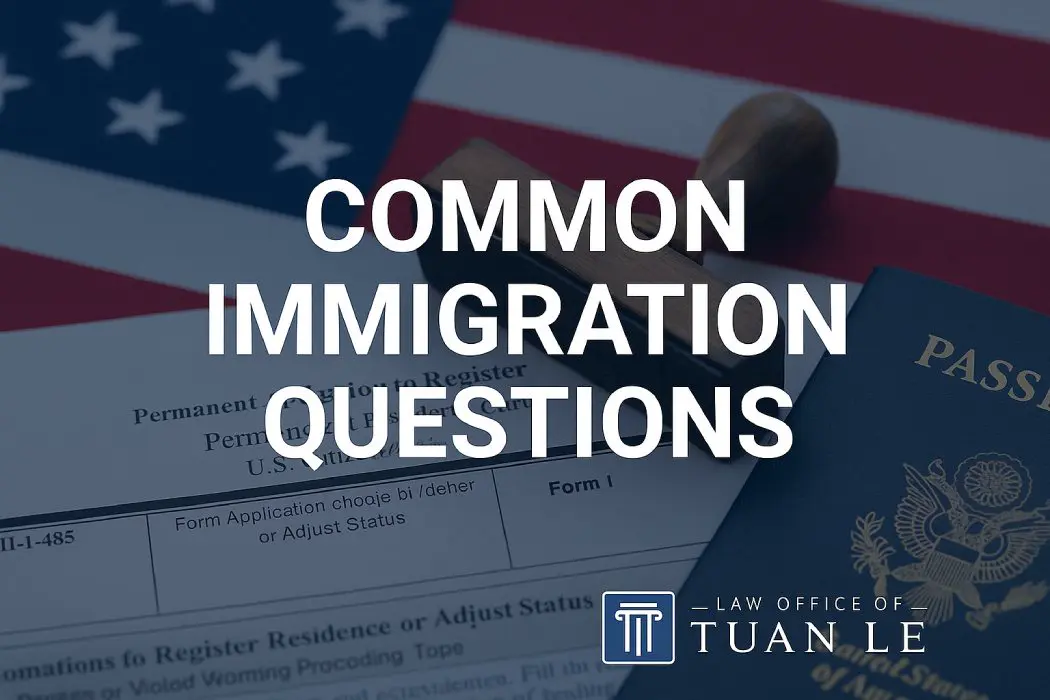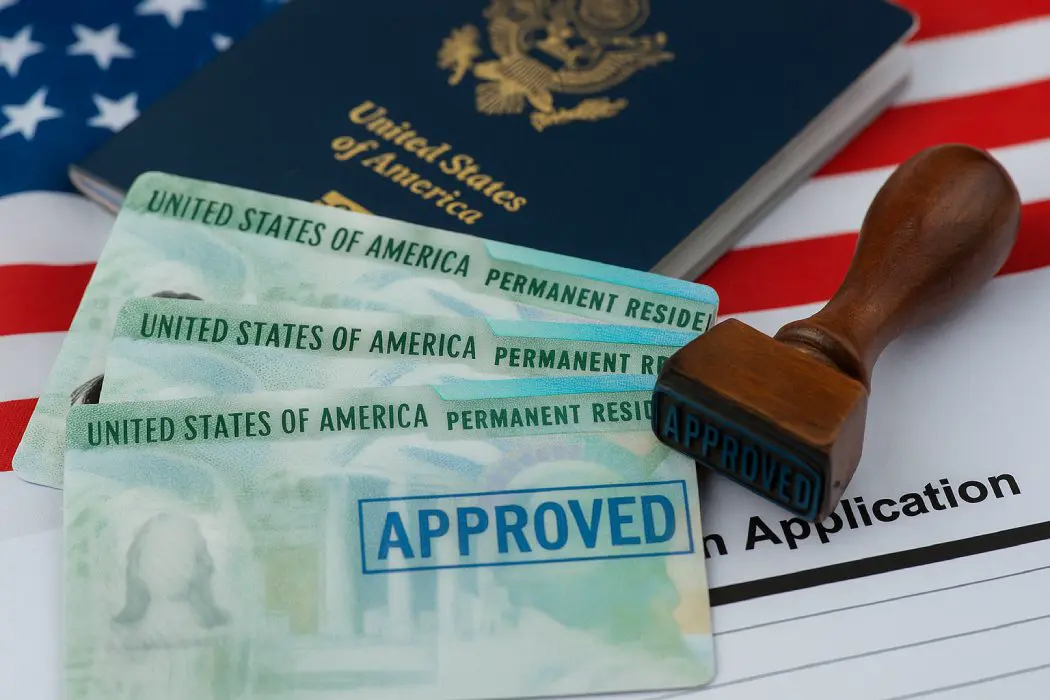Resources
A Path to Legalization for Undocumented Immigrants
November 18, 2025
2 min read
Our experienced immigration lawyer in Orange, CA, answers common immigration questions in simple terms to help you understand your options.

Every day, at our law office in Orange, CA, we receive many questions about different aspects of US immigration law and policy, which isn't surprising given the complexity of the immigration process in the USA and the ever-changing nature of the policies here. So, our experienced immigration attorney is answering some of the most common immigration questions in simple words in this article to help you make better sense of the legal process. Whether you're seeking a US visa, green card, or citizenship, the Law Office of Tuan Le in Orange, CA, is here to help you take confident steps forward. Get started with a free consultation today!**
The complicated laws, overwhelming and time-consuming paperwork, and unfamiliar legal terms make many applicants feel lost in the process. However, you're not alone. A trustworthy immigration lawyer can easily handle your case and be by your side throughout the whole process. We've compiled the top immigration law questions we receive and answered them below to save you some time and help you understand your options more clearly. If you can't find the answers you're looking for, feel free to call us at (714) 983 0334 for a free consultation.
To apply for your lawful permanent residency or Green Card, you have a few options:
Those who wish to become U.S. citizens through naturalization should meet the requirements below.
While the interview questions at a US embassy or consulate can be different depending on the type of application, some common questions are asked in almost every case, including questions regarding:
If you're a citizen, a green card holder, or a refugee/asylee, yes, through family-based immigration. US citizens can petition for their spouses, children, parents, and siblings. And permanent residents (green card holders) can petition for their spouses and unmarried children. Also, if you've been a refugee or asylee for at least 2 years, you can petition for your spouse and unmarried children under 21. Learn more about the details of sponsoring a family member here.
A visa (immigrant or nonimmigrant) allows you to enter the US, whether you wish to stay permanently or temporarily. However, a green card is a lawful permanent residency that allows you to live and work in the US indefinitely. Typically, you first need a visa to apply for a green card.
Although green card holders can live and work in the US on a long-term basis, there are some restrictions and limitations for them. For example:

The options you have, depend on your situation. Some common options include:
Common student visa USA requirements (F-1 student visa) include:
You can apply for asylum in the US by filing Form I-589 within one year of your arrival. You should be able to prove that you're eligible to seek asylum due to unfair persecution in your home country. This process includes not only supporting documents and evidence but also interviews and probably court hearings. Read "How to Seek Asylum in the USA" for more details.
Even during removal proceedings, you have some legal options and defenses, including:
In most cases, the answer is yes. If you apply and get an EAD (Employment Authorization Document), you can legally work in the US while adjusting your status.
Depending on the case, personal circumstances, and the service center, the processing times vary greatly, from a few months to a few years. You can see an estimate of USCIS's different case processing times here. Looking for an experienced immigration attorney in Orange, CA? The Law Office of Tuan Le will be by your side every step of the way.** Call now to schedule an appointment.
In any country and language, understanding legal options and policies, filing paperwork, and attending court hearings, trials, and embassy interviews are confusing and complicated unless you have a good handle on the law and its language. So, as a foreigner in the US, especially if English isn't your first language, it's almost impossible to go through such legal processes without a problem all alone. That's why, to avoid costly mistakes, deportation risk, or any other similar issues, you'll need a certified immigration lawyer by your side. Mr. Tuan Le, in Orange, California, is an experienced lawyer in different visa applications, green card applications, naturalization, asylum application, immigration court, and other legal matters non-native individuals in the US might face. You can call (714) 983 0334 or fill out the contact form and start with a free 30-minute consultation.
Need guidance from an experienced immigration attorney?
Mr. Le has granted you a 30-minute consultation session.